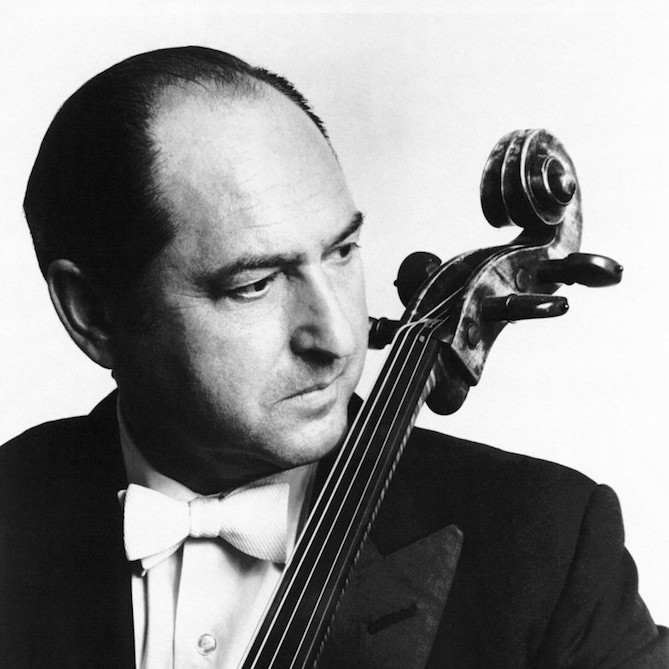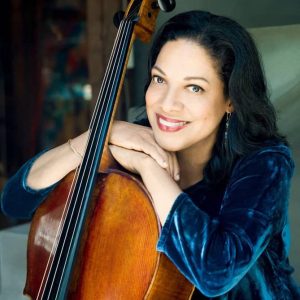
Bach 6th Suite and the Outermost House
Astrid Schween
My most important lessons with Bernard Greenhouse took place after my official university studies with him were over. By this time, I was a member of the Lark Quartet and my colleagues and I invited him to play the Schubert Cello Quintet with us on tour.
With each concert, I marveled at Bernie’s ability to bring new life to the same music night after night, and I found myself delighting in each new detail. Bernie’s approach to the famous pizzicato dialogue with the first violin in the Adagio of the Schubert was a study in color and nuance. Each pizzicato appeared like some sort of character, first responding, then provoking, insinuating, and finally retiring, always beautifully in tune and resonant. I made a mental note to pay attention—this was artistry of a special sort.
Bernie was the first teacher to talk to me about the vitality of the left hand and the concept of enunciation and using the bow to “speak.” In fact, he seemed to sing with the left hand and speak with the right. I found this intriguing, since I had grown up in the Leonard Rose School of cello playing, in which the right hand assumes such a primary role in the singing process.
In later years, I would drive out to Wellfleet for marathon lessons with Bernie. On one such visit, we devoted an entire afternoon to the Bach 6th Suite. Bernie had great solutions for the notorious fingering and string crossing problems that abound in this piece, but the most profound insights that day came to light in the Allemande. Bernie would not let me play a single note of this movement without vibrato. He wasn’t asking for a full concert vibrato, but rather a gently vocal vibrato that “resulted” from the placement of the finger. I think he was introduced to this idea by Casals and then, developed it further on his own.
For me, this approach was new and beautiful. He gave extraordinary attention to the beauty of each note, and it was fun being artistically engaged to such a degree.
I later discovered that Bernie and I shared a love of the sea. Bernie was a sailor and to celebrate our shared appreciation of sailboats, I gave him, “The Man Who Sailed Alone Around the World, “ by Joshua Slocum. He immediately had the book copied into a large print format and dug in.
Upon arriving at his house on the Cape (“Casa Verde”), surrounded as it was by salt marshes, I was always moved by the sense of solitude and happy isolation afforded by these surroundings. Years later, when reading the Cape Cod classic, “The Outermost House,” I was reminded of Bernie’s beautiful home, reliving that sense of contentment and thoughtful quiet that comes with being alone with one’s thoughts in a naturally spectacular environment. Practicing is a solitary experience and at Bernie’s I glimpsed something of the joy he must have experienced in the enriching environment that he had made for himself and his creative process.
In 2005, Bernie made the long trip from Wellfleet to Amherst to work with my UMass students in a master class. After the class, he played Casals’ “Song of the Birds,” bringing everyone to tears. Once again, I found myself paying close attention to this beloved and generous teacher, and great musician.
 Cellist Astrid Schween is an internationally recognized soloist and chamber artist. As a long-time member of the Lark Quartet, she performed in some of the world’s most prestigious venues, recorded numerous CDs, and received many honors including the Naumburg Chamber Music Award and the Gold Medal at Russia’s Shostakovich Competition.
Cellist Astrid Schween is an internationally recognized soloist and chamber artist. As a long-time member of the Lark Quartet, she performed in some of the world’s most prestigious venues, recorded numerous CDs, and received many honors including the Naumburg Chamber Music Award and the Gold Medal at Russia’s Shostakovich Competition.
While still a teenager, she made her debut as soloist with the New York Philharmonic under the direction of Zubin Mehta and went on to receive bachelors and masters degrees at The Juilliard School, where she was twice awarded the Juilliard Cello Prize. Her teachers there included Harvey Shapiro, Leonard Rose, Channing Robbins and Ardyth Alton. She also studied with Bernard Greenhouse, Dr. H.T. Ma, Eugene Moye and in London with Jacqueline Du Pré
Ms. Schween currently serves as cello professor at the University of Massachusetts Amherst, and is on the faculty of the Hartt School of Music, Mount Holyoke College, and Interlochen Center for the Arts. She has served as juror for the Fischoff, Sphinx, New England Conservatory and Concert Artist Guild competitions and is an occasional speaker and panelist for organizations such as Chamber Music America. Most recently, she was appointed to the Artistic Advisory Board of the new Global M-Prize Competition and invited by the Library of Congress to speak on the leading role of women in music.
A frequent guest artist with the Boston and Memphis Chamber Music Societies, Ms. Schween also performs extensively as a member of the Boston Trio, an ensemble-in-residence at the New England Conservatory. Invited by celebrated violin virtuoso and Artistic Director, James Ehnes, Ms. Schween will perform at the Seattle Chamber Music Festival in January 2016. She has also been invited by Pulitzer Prize-winning composer George Walker and the Juilliard School, to perform the Walker Sonata for Cello and Piano at Juilliard and the Harvard Club in New York this season.
In September 2016, Astrid Schween will succeed Joel Krosnick as cellist of the Juilliard String Quartet and join the faculty at The Juilliard School. She will join the quartet this spring as a guest artist for performances of the Schubert String Quintet at the Chamber Music Society of Detroit, Ravinia Festival, and at Lincoln Center’s Alice Tully Hall.
Astrid Schween is represented by Rile-Gallant Artists.
Subjects: Artists

